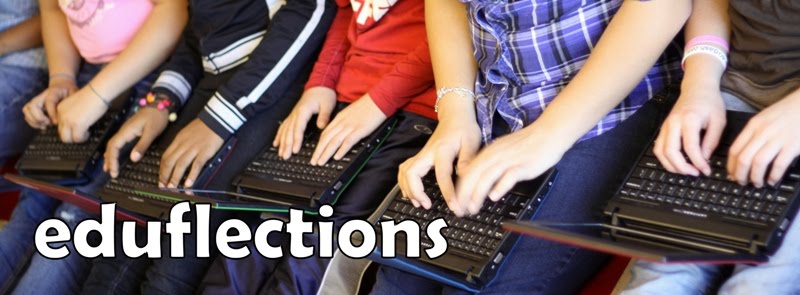We've all had them...seriously. Those days that never seem to end. Nothing seems to go right. Your to-do list continues to grow. All around you, you see others whose lives seem picture-perfect both in the classroom and personally. Yet, you are struggling to make it through a single lesson....and those lessons are far from the vision that you had for them. You have students who need help academically, socially and in their personal lives and you feel like you are failing them every single day. You begin to wonder, "What am I doing wrong? What am I missing that everyone else seems to have figured out?" You may even be in a place where you are questioning your ability to continue in this position. What do you do when you have THOSE days?
In the interest of being transparent, I must admit that I have been having a series of THOSE days recently. And as I sit here writing, I have been trying to reflect on my choices and how I can change my mindset to best provide my students what they desperately need.
One thing that we all need reminding of is that we cannot compare ourselves to the highlight reels that other educators post. We are living the good, bad and ugly. We see it all. Typically, excitement leads us all to share our successes with others. We've built relationships. We want to pay forward to those who have helped us out by sharing successes. Although these posts come from a wonderful place, as the audience, we need to remember that for every success there is a cache of failures. As educators, we are lifelong learners who have learned that failures can be a very positive way of growing. Unfortunately, we don't always share THOSE experiences which leave the appearance that everything is smooth sailing. I guarantee that every single educator that you admire, no matter who they are, is having that same feeling of inadequacy from time to time. That feeling is typical for educators because we all feel the weight of responsibility that we are carrying with us every day. Our students need us...
For many of our students, we are the light in their days. We are a break from their reality beyond the classroom walls. We are the safe place that inspires, encourages, nurtures and guides them into being the best part of themselves. We are equipping them for their future; the future they imagine for themselves. That is indeed a grave responsibility. However, as I look back on some of my most significant successes with students, many of them have been born out of a failure, where something unintended happened. When we have a lesson that is less than stellar or the new strategy that we were hoping would support a student in a particular area of need, we all (and I'm speaking to myself here) need to remember that our students are going to learn from our example and how we handle things when the train comes off the rail. We need to remember that we are teaching humans, not content. Our actions speak much louder than just our words.
And with that idea in mind, we need to remain focused on our mission. It is easy to become derailed. We all have things that impede our time or ability to effectively teach our learners. We have pressure to give standardized assessments and collect data. Lots and lots of data. We have book studies, action research, new school procedures and committees that need our participation. There are parent conferences, IEP meetings, eligibility meetings, 504 meetings, RtI meetings, department meetings, faculty meetings and grade level meetings. We serve lunch duty, bus duty, and hall duty. We coach, mentor, sponsor, and lead professional development. Many of these come with their set of time, responsibilities and work. As educators, we have so many (worthwhile) things pulling at our precious time; it's easy to lose our focus. When we become overwhelmed, it is crucial that we remember WHY we do this: our students need us. They need us every day. We need to make them our number one priority.
It's okay to have a bad day. We all have them. Sometimes we have a bunch of them in a row. But as the lead learner in our classrooms, it's how we handle them that can make a world of difference in the lives of our students.


No comments:
Post a Comment